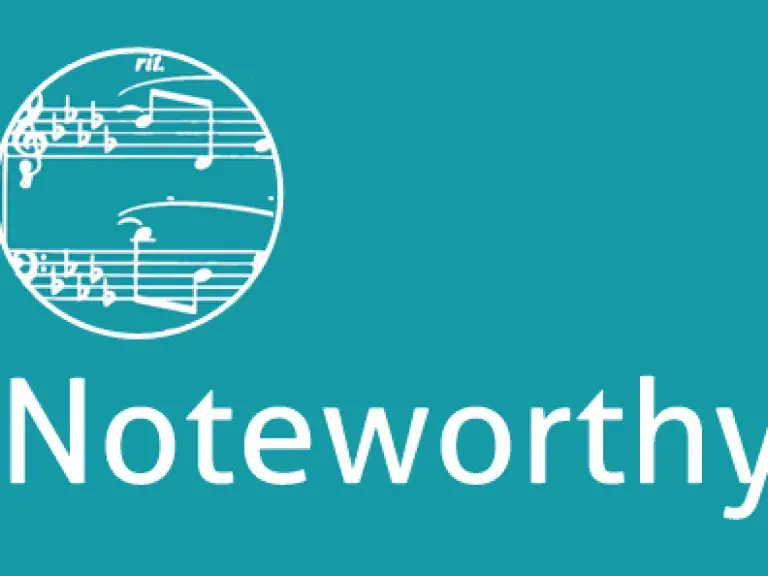
Mass in D
By Ethel Smyth
Recommended by Mark Shapiro
From Mark Shapiro:
" For historical and cultural reasons alone, attention should be paid. Happily, though, this magnificent work warrants consideration entirely on its merits. "
~Mark Shapiro
I discovered Dame Ethel Smyth’s magnificent Mass in D over twenty years ago, by the purest serendipity. An inveterate pre-Internet browser, I was prowling the music stacks of the Lincoln Center Library for the Performing Arts when a humble volume caught my eye. As I recall, its austerely bound spine bore the laconic legend: “Mass, Smyth.” My curiosity engaged, I took it off the shelf and began leafing through it. The Kyrie’s opening passacaglia was so striking—so rich in atmosphere, and rendered with such an extraordinary command of counterpoint and harmony—that I brought the book home with me. Shortly thereafter I gave the piece its second American performance, the first in the Eastern United States, with the Monmouth Civic Chorus in Red Bank, New Jersey. (The indefatigable Philip Brunelle had previously given the American premiere in Minneapolis, with the Plymouth Music Series, now VocalEssence.) In 2013, I had the privilege of returning to this work to give its long-awaited New York premiere, in Carnegie Hall, with the Cecilia Chorus of New York. (The LIU Post Chorus participated in that performance.)
There is no question in my mind that Dame Ethel Smyth’s Mass in D fully deserves a permanent foothold in the choral-orchestral repertoire. Obviously the work—which dwarfs what some might consider its predecessor or peer, Fanny Mendelssohn’s Oratorium nach Bildern der Bibel—is the first large-scale choral-orchestral piece of the Romantic era to have been composed by a woman. Without a doubt, Dame Ethel, who was also imprisoned as a suffragist, fought a mercilessly uphill battle to be taken seriously by the British musical establishment. For historical and cultural reasons alone, attention should be paid.
Happily, though, this magnificent work warrants consideration entirely on its merits. The vocal writing is vivid, impassioned, and absolutely idiomatic. The orchestration is thrillingly colorful. The compositional ideas, and their development, are unmistakably the outpouring of an incandescently engaged musical imagination. One senses a fully professional composer, by no means a student or amateur, authentically communicating through musical sound an unstoppable flow of personal feeling. Dame Ethel began writing the Mass in response to a series of personal crises; from start to finish, a sympathetic listener has no difficulty hearing the composer’s emotional journey, her spiritual life very much on the line in every bar.
In the performances I conducted, response from all participants as well as the audience was rhapsodic. A cautionary word, however: the orchestral parts are in very poor condition. I fervently hope that Novello will create new ones.
Movement 1: Kyrie
Movement 2: Credo
Movement 3: Sanctus
Movement 4: Benedictus
Movement 5: Agnus Dei
Movement 6: Gloria
Date of premiere: 1893
Author/source of text: Mass text
Length: 65 minutes
Parts: chorus and orchestra
Publisher: Novello
Recording information: Chorus and Orchestra of the Plymouth Music Series, Philip Brunelle, conductor. EMI Classics 5.67426.2

Shapiro
Mark Shapiro is music director of the Prince Edward Island Symphony and of The Cecilia Chorus of New York and artistic director of Cantori New York. He is one of a handful of artistic leaders in North America to have won a prestigious ASCAP Programming Award four times, achieving the unique distinction of winning this award with more than one ensemble.
Shapiro has been heard on PBS, conducting the soundtrack for Ric Burns' special on New York City, as well as on radio stations WQXR and WNYC, and Sirius Satellite Radio. He was a guest conductor for Works&Process at the Guggenheim Museum, and for the New York Art Ensemble at Merkin Hall. He spent over two decades at the helm of the Monmouth Civic Chorus in Red Bank, NJ.
Frequently in demand as a master teacher, consultant, and clinician, Shapiro has also participated in a Chorus America Choral/Orchestral Conducting Masterclass. He was invited to Austin by the Grammy-nominated ensemble Conspirare to lead workshops and conduct Copland’s Fanfare for the Common Man as part of a regional festival presented by the National Endowment for the Arts. In August 2010 he led a ten-day workshop at the triennial Choralies festival in Vaison-la-Romaine, France, which culminated in a sold-out performance of a version of Handel’s Saul in the 5000-seat Roman amphitheater.
Shapiro is assistant professor of music at LIU Post and has been a long-time member of the conducting faculty of Mannes College the New School for Music. He is director of the conducting program at the European American Musical Alliance in Paris, France.
Chorus America’s Noteworthy web series highlights choral repertoire that may not be familiar to you—yet. Each month, a different conductor, music director, or other artistic professional recommends a piece of music that hasn't been widely noticed, but in his or her opinion, deserves to be heard.

